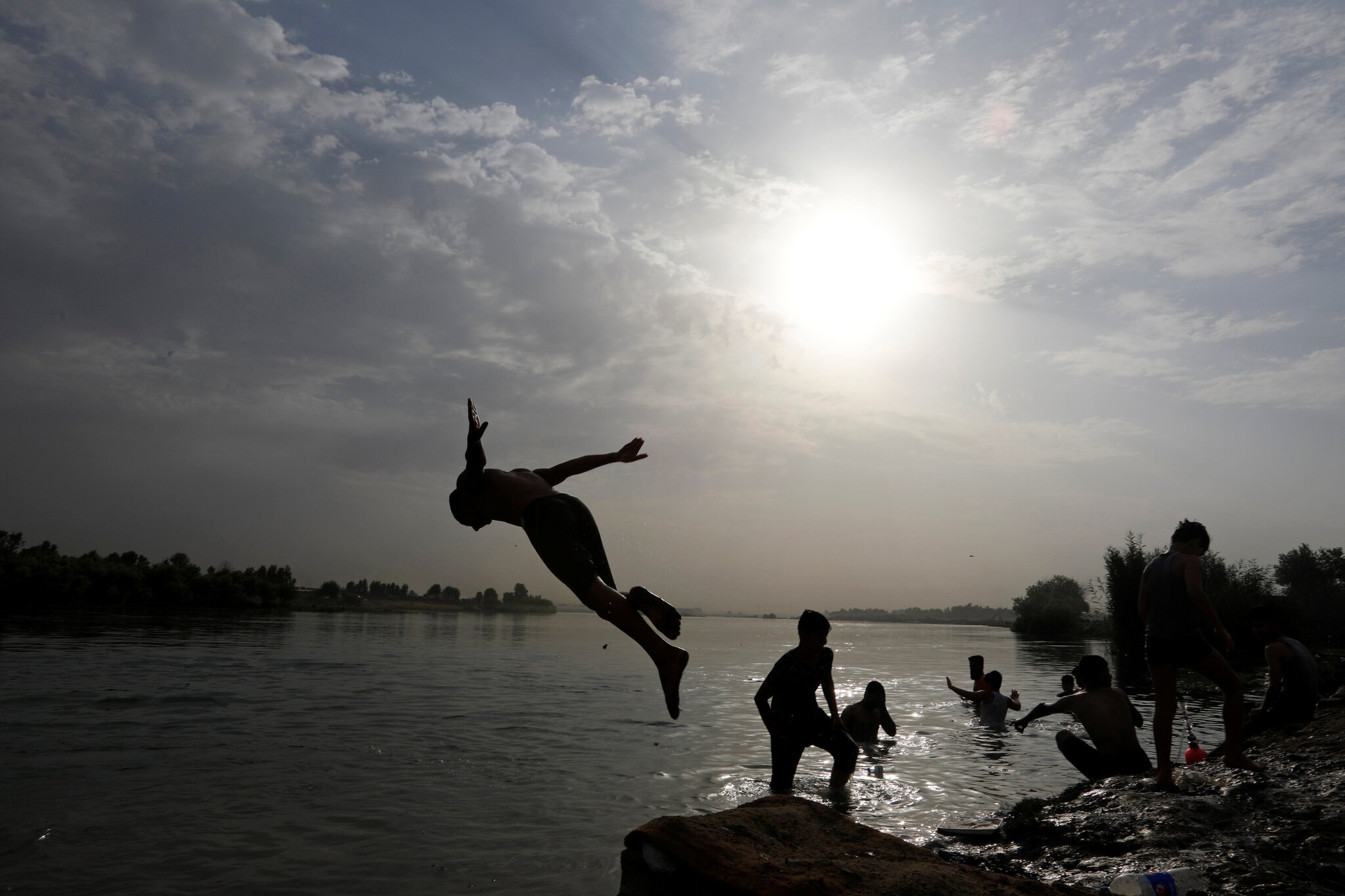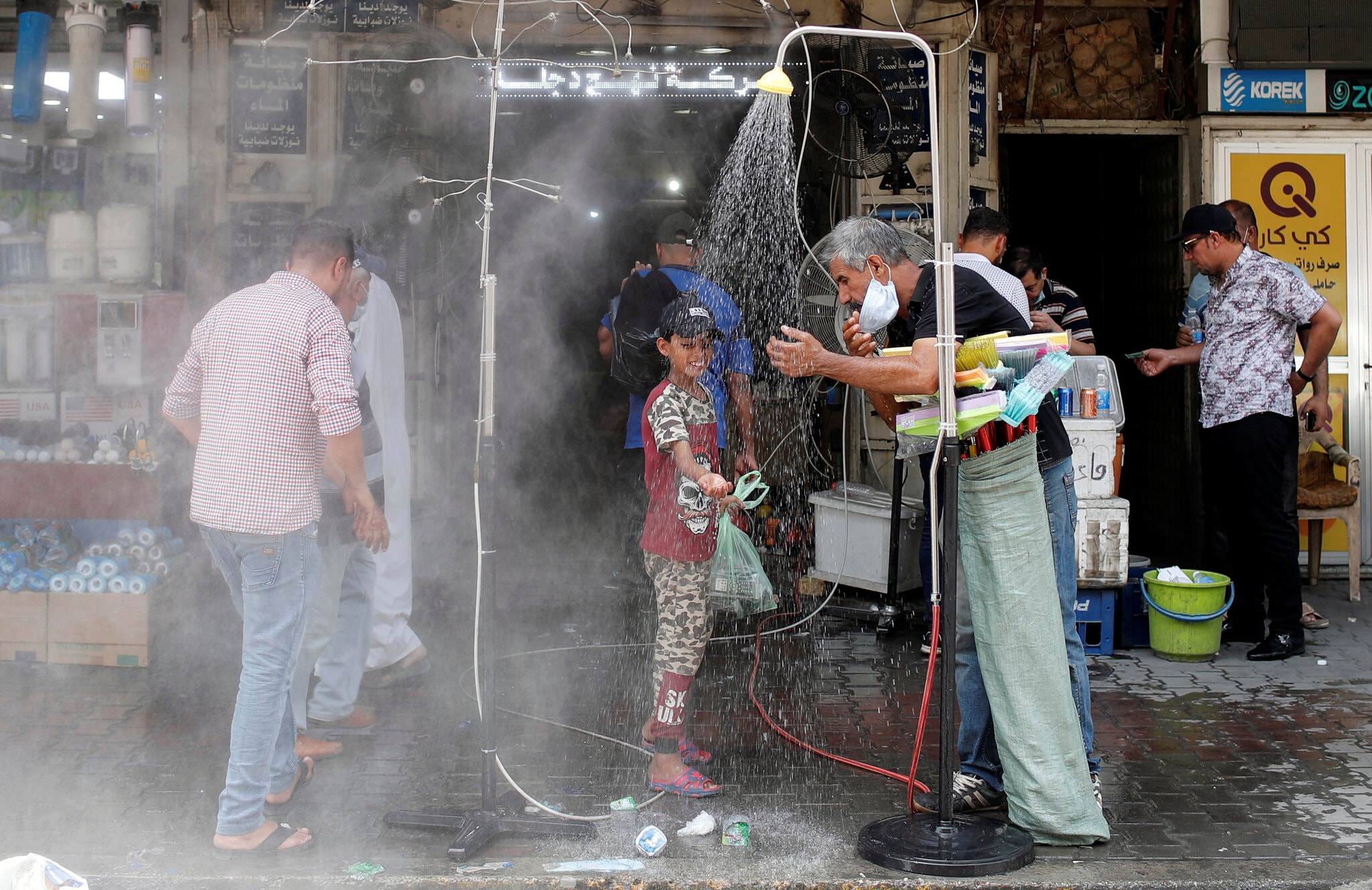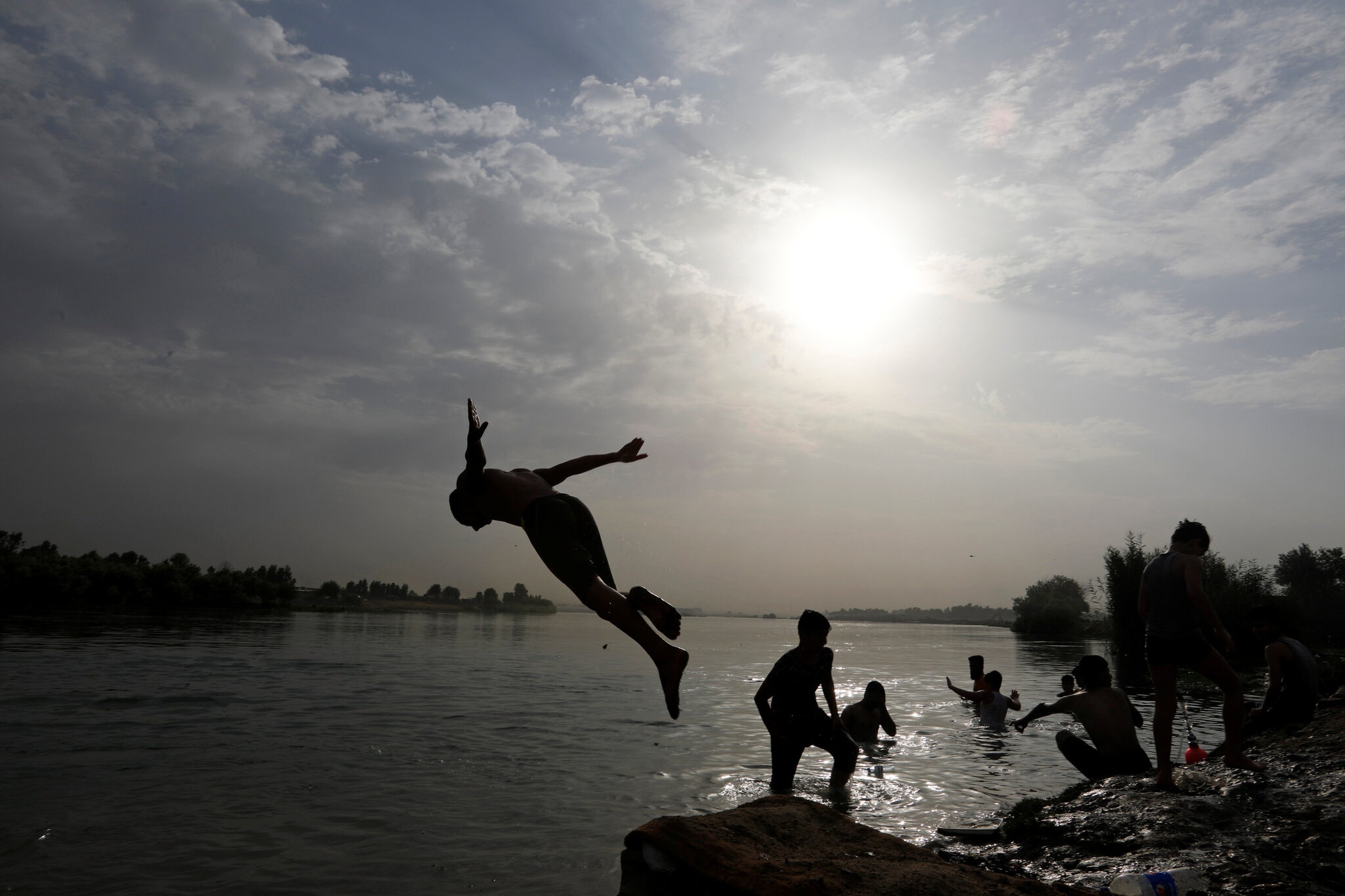Record high temperatures were recorded in Baghdad and Damascus, and experts warned of the effects of prolonged heat waves as the planet warms.
According to New York Times.com, several countries in the Middle East experienced record high temperatures this week as many marked the Muslim celebration of Eid al-Adha amid the coronavirus pandemic. The heat wave left cities sweltering in scorching temperatures of 120 degrees (48 degrees Celsius) or more for days, raising concerns it was a sign of future misery under the warming effects of climate change.
Iraq has been hit especially hard, with Baghdad recording its all-time highest temperature on Tuesday, followed by its second hottest day on record on Wednesday.
The southern city of Basra also recorded temperatures of 120 degrees and higher for days, with the mercury hitting 122 degrees on Thursday, a temperature also recorded in Amara, in the southeast.
“The heat is unbearable,” said Ahmed Hashim, a 30-year-old Baghdad resident. “There’s a psychological pressure, people can easily get into a fight.” Mr. Hashim said he had seen people faint from the heat in the streets of the Iraqi capital. Some have tried to find respite from the scorching temperatures in public fountains.
Meteorologists define a heat wave as a prolonged period of unusually high temperatures that span across several days, usually three. Combined with high humidity or the lack of cool temperatures at night, extreme temperatures pose risks to the elderly and children.
With average worldwide temperatures rising as a result of carbon dioxide emissions and other heat-trapping gases, periods of extreme heat are becoming more frequent and more intense, with the situation particularly dire near the Equator.
But cooler regions have not been spared. Intense heat afflicted Europe this week, a year after extreme temperatures soared across the continent, and several cities like Paris and Glasgow recorded all-time high temperatures.
And a study of a prolonged heat wave in Siberia earlier this year found that global warming made the extreme temperatures 600 times more likely there.
Temperatures regularly go above 115 degrees in the summer in Riyadh, Saudi Arabia; Amman, Jordan; and Baghdad; 120-degree days are no longer exceptional. But meteorologists have warned that the current heat wave may be longer and more widespread across the region.
A report about climate change in the Middle East published by the United Nations in 2017 estimated that average temperatures could increase nearly 10 degrees in certain areas of the region by the end of the century, and that the number of days over 104 degrees would increase significantly.
The number of nights per year where temperatures remain above 68 degrees Fahrenheit may also jump from 40 to 80 or 90 by the end of the century in the region, said Paolo Ruti, a meteorologist and the director of the World Weather Research Program at the World Meteorological Organization, a United Nations agency.
In May, the World Meteorological Organization warned that the pandemic would increase health risks caused by high temperatures, forcing people to congregate indoors in air-conditioned public spaces, while leaving vulnerable people more exposed to heat stroke.
In Iraq, Jowdat Abdul Rahman, a spokesman of the country’s civil defense forces, said the heat wave’s impact had been aggravated by the pandemic.
“Iraqis used to go to swimming pools when temperatures would rise, while now, they can’t,” he said.
And for the first time, he said, birds are dying because of the heat. “I had never seen such a thing before.”



